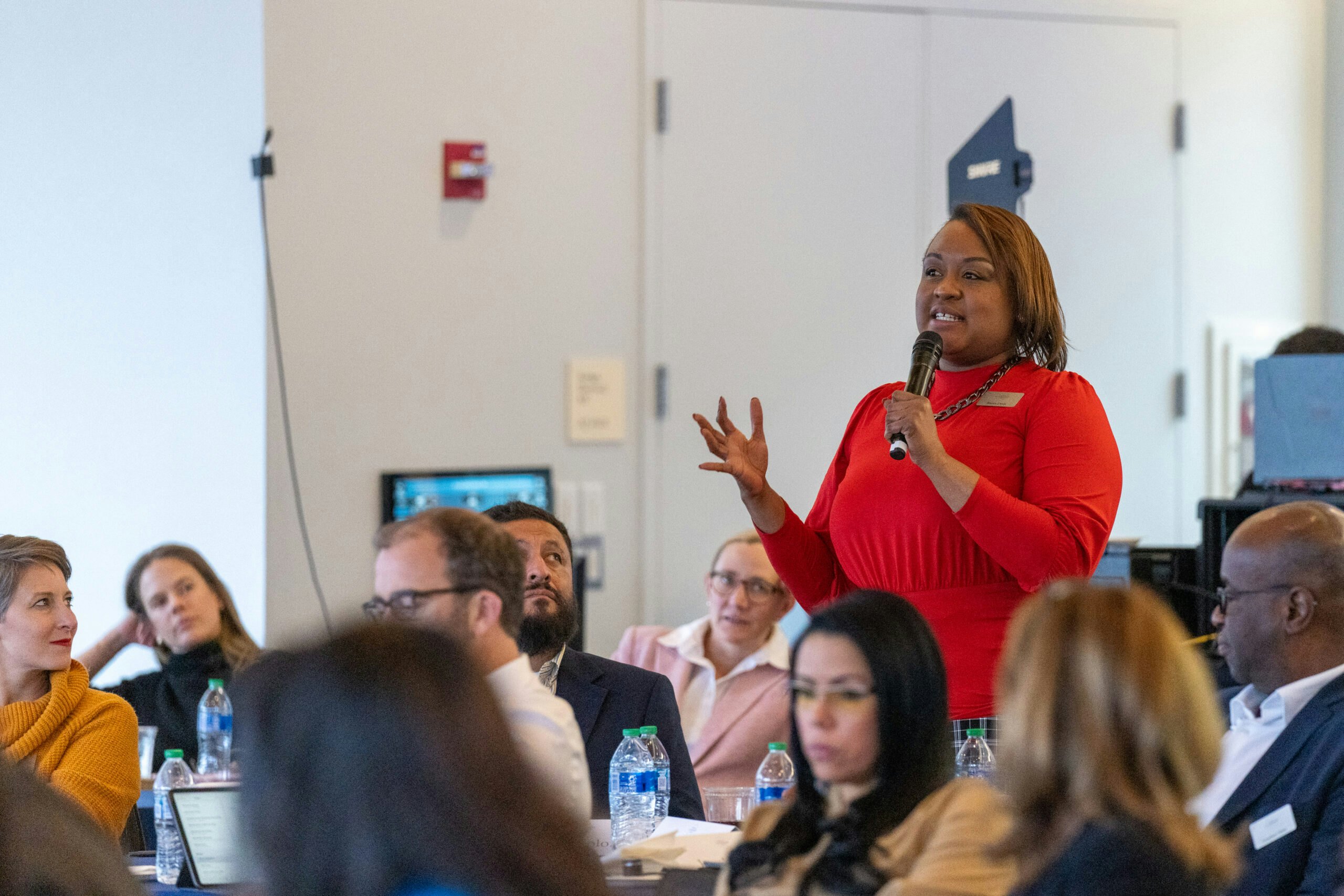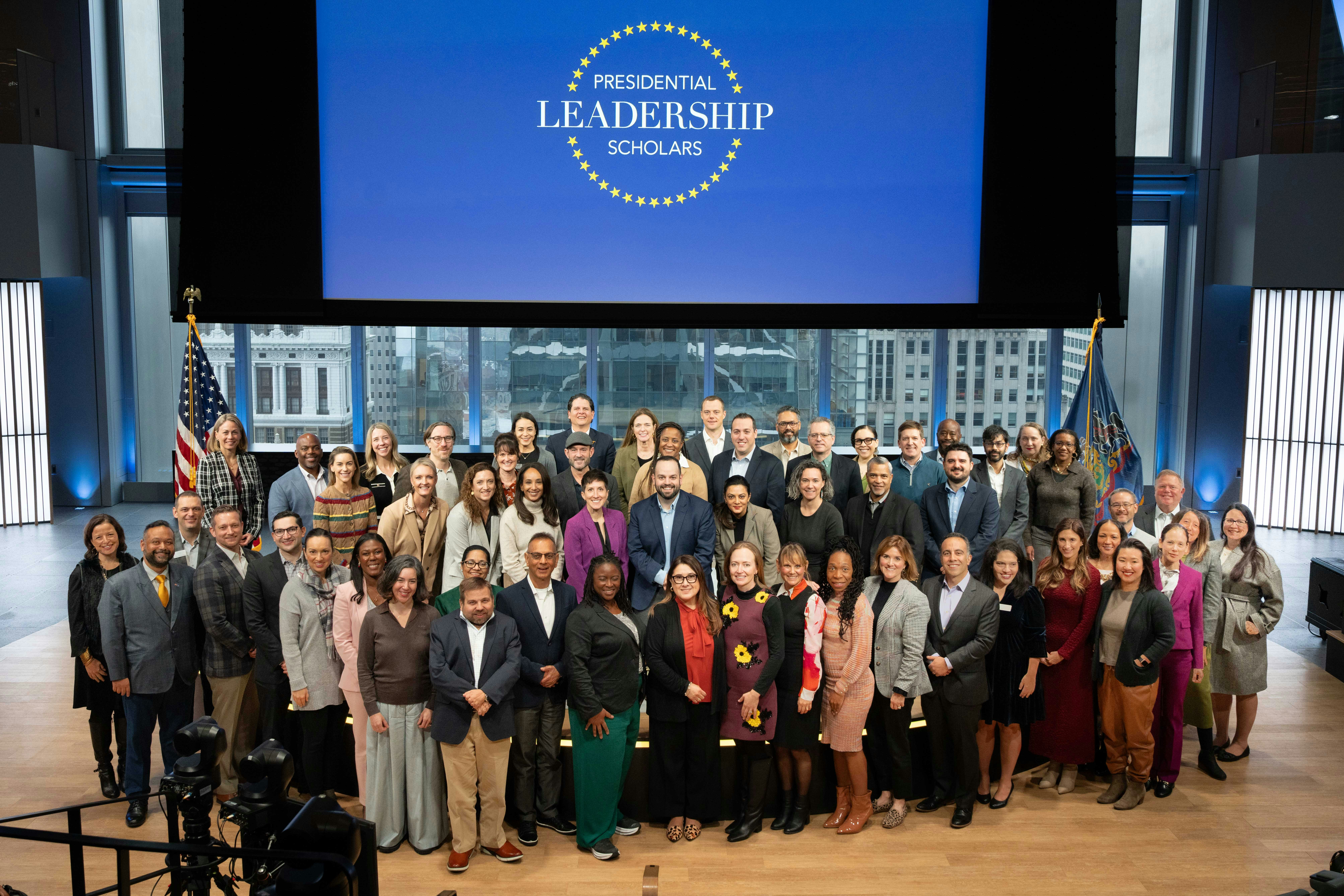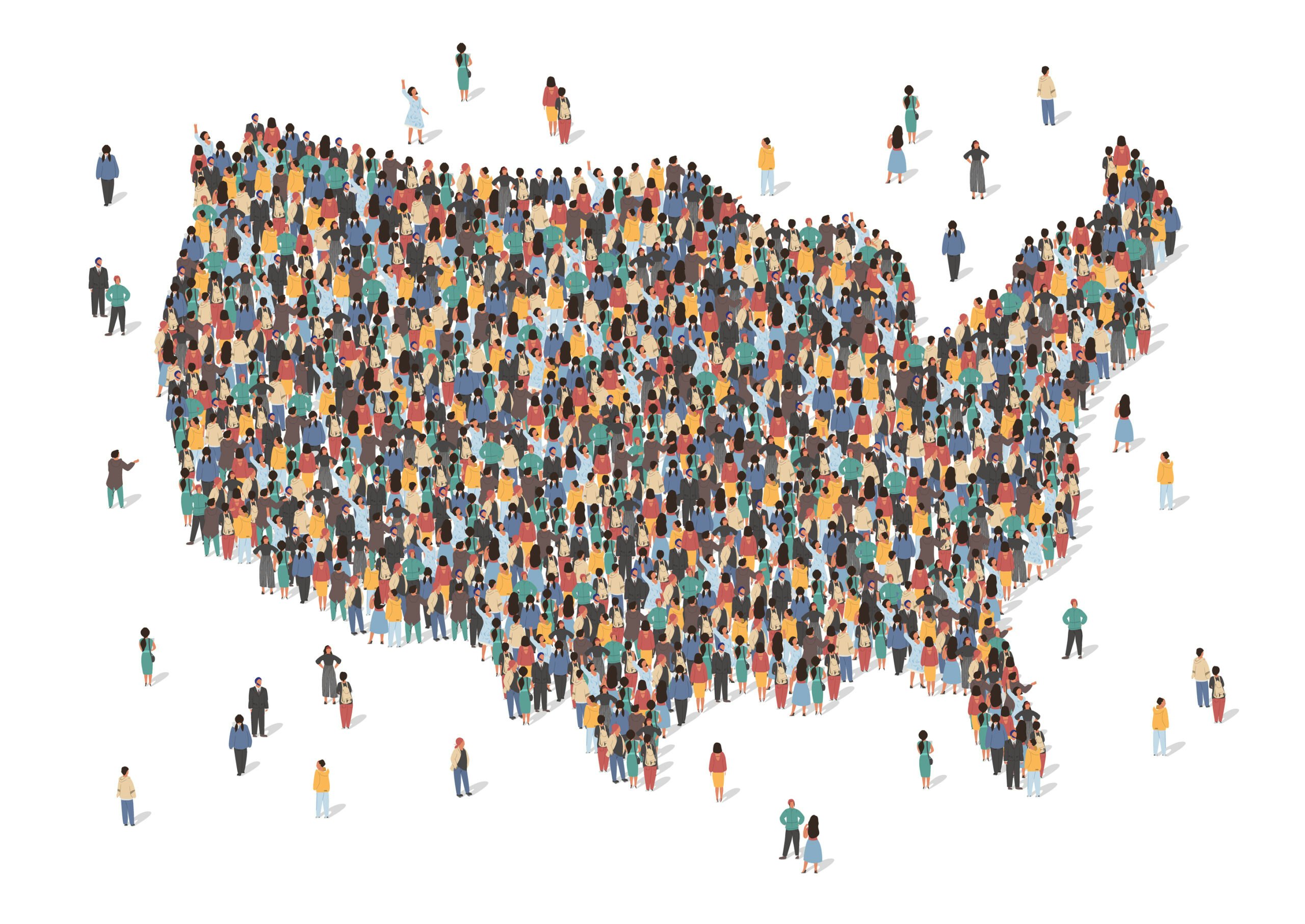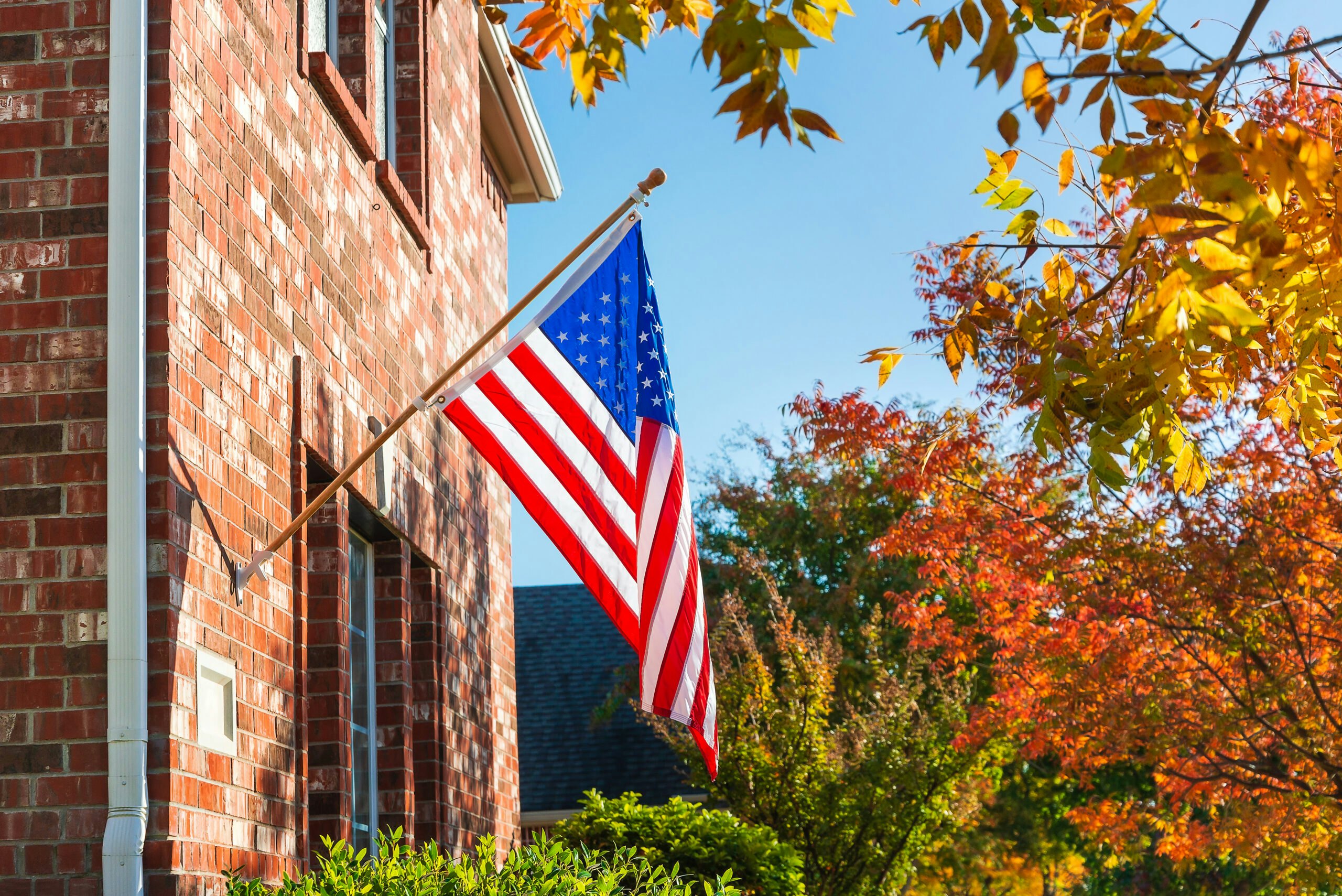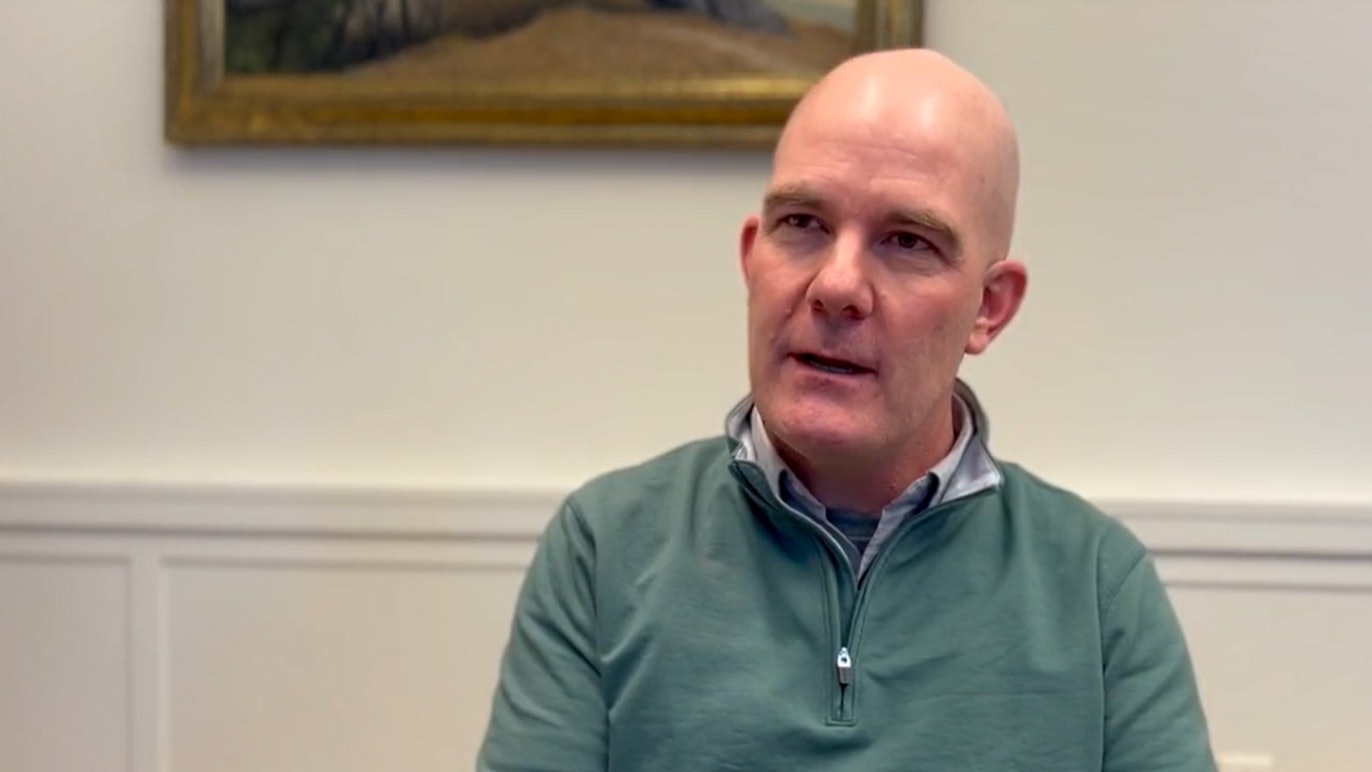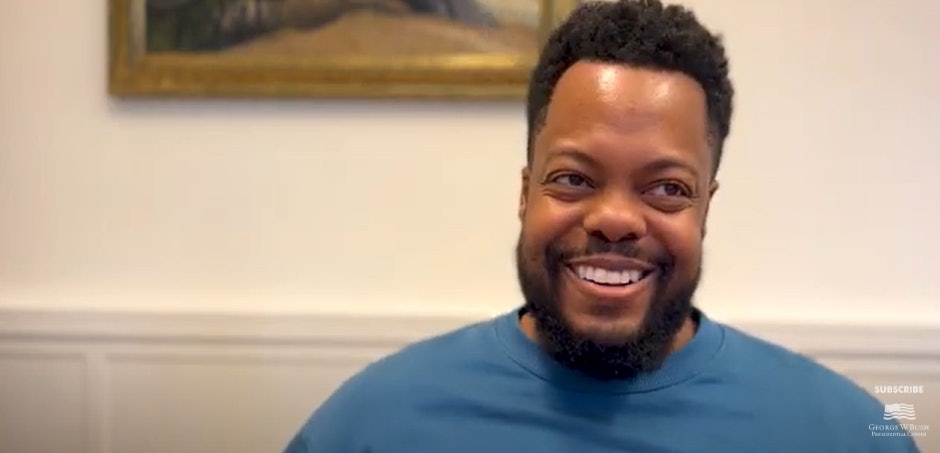David French, Senior Editor at The Dispatch, shares that pluralism is the antidote to greater fracturing and how he draws hope for the future from how America’s founding principles have guided the nation through times of conflict.
David French is Senior Editor at The Dispatch, a TIME columnist, and author of the new book, Divided We Fall: The Secession Threat and How to Restore Our Nation. A graduate of Lipscomb University and Harvard Law School, the Iraq War veteran previously served as a staff writer for National Review. In his most recent book, he explains why and how Americans must bridge the nation’s widening ideological divide.
The Tennessean elaborated upon those themes as he discussed the need for civic engagement and civil dialogue with Chris Walsh, Senior Program Manager for the Human Freedom Initiative at the George W. Bush Institute, and William McKenzie, Senior Editorial Advisor at the Bush Institute. French contends that pluralism is the antidote to greater fracturing. And he draws hope for the future from how America’s founding principles have guided the nation through times of conflict.
How do you define civic engagement?
Civic engagement is a tangible engagement with your community that is at least one step beyond voting. That might be volunteering with a local branch of a political party. It might be getting involved with a school board or running for school board. Or maybe it’s volunteering at a crisis pregnancy center or with a ministry to the homeless.
Community engagement moves you out into the community to impact it beyond voting and beyond social media. It’s taking a step outside.
What stands in the way of greater civic engagement?
Inertia is a rule of physics, but it’s a social rule as well. An object at rest tends to remain at rest. Another general principle is that starting friction is greater than sliding friction. It takes more energy to start something out of a state of rest than to keep it in a state of motion.
For many of us, the idea of adding something to our plate is daunting. It’s just hard to do more things, especially if you don’t know how to do it. And entering into civic engagement can feel opaque and complicated. How do I get a stoplight at a dangerous intersection? If you gave me that quiz, I’d fail it. I don’t know.
Community engagement moves you out into the community to impact it beyond voting and beyond social media. It’s taking a step outside.
And, sadly, too many people I talk to regret getting involved because of our degrading civil discourse. That’s one thing we have to really work on in this country.
You write in Divided We Fall: “As we sprint away from each other, we are also scorning the very idea of pluralism itself in the legal doctrines and cultural norms that preserve and sustain our nation’s distinct communities.” What would you say to people about why pluralism matters to our communities and civic engagement?
Let me get pragmatic and then idealistic. Pluralism is not utopianism. Pluralism acknowledges the existence of permanent and profound differences. You’re going to have a community where people disagree with each other, and we’re not going to all come together. But I like how Scott Alexander, which is a pseudonym for a former writer for the weirdly-named Slate Star Codex blog, said that pluralism and classical liberalism are the greatest civil war avoidance mechanisms ever created by the mind of man.
If people are going to have enduring differences, how do we live together? That’s a tough question that hasn’t been answered all that well in human history. But the answer is pluralism and classical liberalism. They provide the ability to form distinct communities that enjoy distinct liberties and can thrive according to their distinct values.
A super shorthand way in which I write about it in the book is, let California be California and Tennessee be Tennessee, so long as you protect the baseline level of human rights that are defined in the Bill of Rights.
However, we’re living in a political culture where we’re incredibly intolerant of what we perceive to be error, bad policy, or bad cultural norms. We’re intolerant of differences and want to defeat our political opponents, even when they don’t have that much relevance to our lives.
You’ve been involved in serious debates around values like free speech, freedom of expression, and limited government. Why do they matter and how do they contribute to civic engagement and community renewal?
Now I’m going to get more idealistic and refer to George Washington. Almost 50 times in his writings, he referred to a particular Bible verse as part of his vision for this new republic. He used it in his famous Declaration of Religious Liberty and Rights of Conscience, when he wrote a synagogue in Newport, Rhode Island, in 1790 to signal his commitment to religious pluralism and religious tolerance. And the verse is this: “That every man shall live under his own vine and his own fig tree, and no one shall make him afraid.”
That’s Micah 4:4, and it is a beautiful statement of what pluralism can be. You have your own vine, fig tree, and place. And you’re not afraid in that place. You can flourish there.
That is a beautiful picture of what pluralism can be. In the nitty gritty, it’s often difficult. But that vision of what it can be is amazing and beautiful.
The Bill of Rights, in particular the right to religious liberty, the right to free speech, and the right to due process, are necessary requisites for the fulfillment of that vision. They protect you from the power of the state and protect your ability to speak into our nation and your communities.
Where our nation has failed to fulfill that vision, like with centuries of slavery and Jim Crow, people could not say of the United States, I have my own vine and fig tree and no one is making me afraid. A Black American could not say that because they did not enjoy the most basic protections of the Bill of Rights.
The values in the Bill of Rights are the entry level into pluralism. They’re the entry level into equality under the law. When we talk about free speech, religious liberty, due process, or equal protection under the law, we’re talking about the pragmatic legal foundations of this beautiful idealistic image that Washington talked about, that the Declaration of Independence declares, and that America has been trying to live up to ever since.
It feels like when we turn on the TV or go on social media, we see plenty of examples where civil dialogue does not take place. So, where do you see people having civil discussions? What makes those happen?
I see civil discussions far more prominently in person than I do online or on television. There’s a “green room” studio distinction in human interaction on television. Pre-pandemic, people who are going to be on a big show like Meet the Press are in the same green room before it starts. They engage in pleasantries about their kids or favorite football team, just having this normal conversation. They might even bring up issues in a respectful way. But then they get on television, and it’s like flipping the switch to a WWE RAW broadcast. It’s like you give the people what they want and what they want is the conflict.
Interesting research from More in Common says that the more time you spend interacting with political media, the more wrong you are about your political opponents in a very specific way. You believe they’re more extreme than they are.
The people who are the most accurate about the beliefs of their political opponents are the people who spend the least time on media. That’s because they get information about their opponents through friendships and relationships.
So, one prerequisite to civility is reviving personal relationships as much as possible. And that circles us back to civic engagement. It is putting you in the community, it’s taking you off the app and putting you in a room. Civic engagement also has the benefit of putting you in a position where you have more ability to impact the world around you. If you’re arguing about national politics on Facebook, does it make a difference? It’s essentially hobbyism.
But if you are at a school board meeting talking about the curriculum in your kid’s school, that’s engagement. And you have an ability to make something happen. Pastors like to say that 20% of the congregation does 80% of the work. I think it’s 10% does 90% of the work, but you get the idea. The people who engage and care the most about any institution end up shaping that institution.
I tell people who are frustrated to get involved locally. You will find out how much more influence you will have because you are there and energetic. You also learn that a lot of issues are more complicated than they seem when you’re arguing about them online. That induces humility and humility can lead to civility and civility leads to better forms of civic engagement.
What else stands in the way of greater civil dialogue?
We increasingly live in bubbles. The New York Times has a tool that allows you to type in your address and it will tell you the percentages of people who vote Republican, Democrat, or Independent in your neighborhood. I would encourage everyone who’s reading this to type in their address.
I typed mine in and I’m in a bubble: 85% percent of my neighbors are Republican, only about 14% are Democrat, and around 1% vote Independent. That’s a big bubble.
Cass Sunstein has articulated this phenomenon called the “law of group polarization.” It is so important to understanding our times. What he said is that social science says that people become more extreme when they gather with people of like mind.
If everyone on this Zoom call, for example, is against gun control and we start talking about gun control, we’re going to leave the Zoom more convinced that we’re right, not less. But if there’s even one person in our little Hollywood Square arrangement who is pro- gun control, they would introduce points that would at least make us think that maybe my position needs to accommodate them.
But the answer is pluralism and classical liberalism. They provide the ability to form distinct communities that enjoy distinct liberties and can thrive according to their distinct values.
You posed a thought experiment in The Dispatch where you examined how and why white and Black Americans might react to situations differently. Tell us more about that experiment and how it might force people out of their polarized silos and improve understanding.
The thought experiment was let’s presume that one out of 10 white Americans are racist, although I think that number is a little low, and that 90% are not racist. It’s not acceptable in that 90% category, especially in prosperous white circles, to express racist thoughts. So if you’re a white person who is in that category and you are not racist, you’re never going to hear racism. But if you’re an African American, that means one out of 10 white people you interact with are racist. You’re going to have racism as a constant omnipresent in your life. You’re going to be encountering a number of people who will be hostile towards you on the basis of the color of your skin.
This is why you can have these two communities. One who’s saying, “I don’t see any racism,” and they mean it legitimately because they don’t experience it. No one around them is talking like that. If someone in their circle is racist, they keep their mouth shut. Then, a Black American is going, “What are you talking about? Let me tell you this story and this story and this story.”
There is this disconnect because we often don’t credit another person’s experience unless we can identify with it. This is human nature. We can’t fully step into someone else’s shoes. But at least we can try to see things from their perspective and be open to hearing experiences that don’t square with ours.
Instead, we don’t listen.
In Divided We Fall, you mentioned how your military service influenced your thinking about your political opponents. You wrote that, “If I had been willing to die for them while wearing the uniform of my country, why should I regard them as mortal enemies today?” How, then, does service, whether in the military, civil service, or government, help make us better, more compassionate citizens?
Not just service; engagement. The short answer is it humanizes your opponents, it makes them flesh and blood people. When you engage in the community, you get to know people. That is one thing that is so unfortunate about our cocooning. We don’t get to know people who disagree with us, in large part because they’re not in our community.
The military, though, is diverse. And it’s not diverse in the way that universities often use the term diverse, which tends to mean people of every race, ethnicity, and sexual orientation who largely think the same way.
The military has people from every walk of life who think every different kind of thought and yet who are forged together for a common purpose. When you see that working, it’s powerful. Deep friendships are forged across some of the largest ideological lines.
I’m a white, Southern evangelical. My best friend that I served with in Iraq is a Mexican American immigrant, who is progressive and agnostic. I’ve been conservative my whole life, he’s been progressive his whole life. But when he redeployed back from Iraq, I had some connections that got him a prime seat at the Obama inauguration. That was my present to him. Welcome home.
As I said in the book, serving with and sacrificing with people who dramatically disagree with you put a lot of our political debates in perspective for me. When I came back from Iraq in 2008, I was becoming less ideologically polarized at the same time the rest of the country was becoming more ideologically polarized. I increasingly felt like a fish out of water.
Our last question may be the most difficult one: What gives you hope about the future of American democracy and prospects for civic renewal?
What gives me hope is America’s past. When the first slaves arrived on our shores in 1619, that was a symbol this new civilization was going to be a lot like the old world. It was going to be plagued with all of the same maladies of oppression and violence. But when 1776 happened, an idea was created: All men are created equal and endowed by our Creator with certain unalienable rights. The Bill of Rights codified that idea.
But we had this conflict between a reality that included slavery and horrific warfare against Native Americans and an aspiration that held all men are created equal. The aspiration was the First Amendment, the Fourth Amendment, the Fifth Amendment. Over time, the aspiration kept transforming the reality because the aspirational ideas of the founding were so powerful.
That’s why every major American movement for justice has appealed to the principles of the founding. It hasn’t tried to overturn the founding, it’s tried to extend the founding. That has been the story of the campaigns for justice in the United States. Extend the founding principles to us now.
So, what gives me hope about the future is the same thing that has given people hope in much more dire times in American history. And that is the principles and ideas of the founding are good. When those good ideas and principles have been in tension with the unjust and sometimes violent realities of our national life, time and again, the aspiration has prevailed. Not easily. Sometimes it takes a blue line in a July day in 1863 to overcome Pickett’s charge. And nothing about the Edmund Pettus Bridge in Selma, Alabama, was easy for the people who were there. But time and time again, those aspirations have prevailed. That’s what gives me hope.




